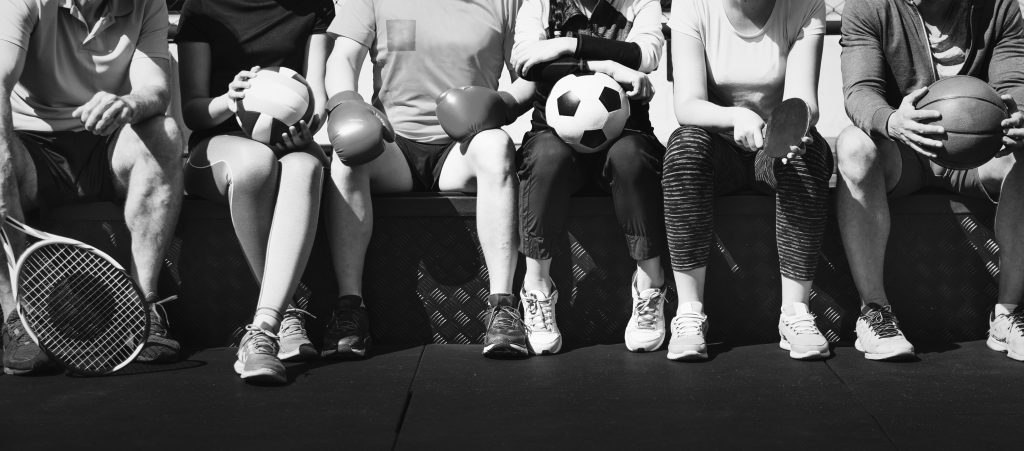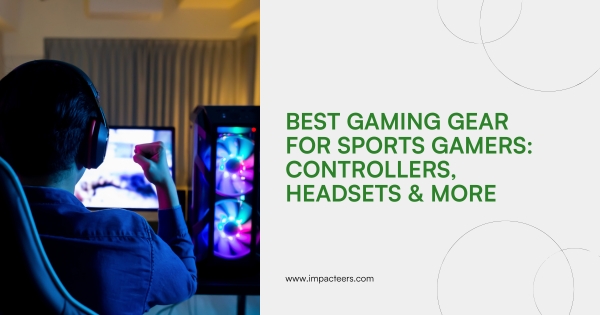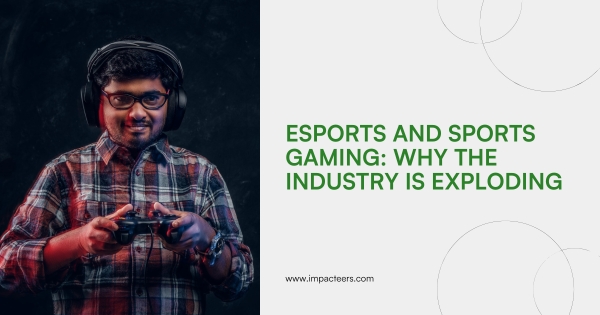If strategic gaming skills you’ve ever lost track of time playing FIFA, Madden, or NBA 2K, you know the adrenaline rush. One minute you’re setting up a perfect pass, the next you’re yelling at your friend for missing an open shot. On the surface, it’s just gaming. But if you look closer, there’s a lot more going on. Those matches are teaching skills real ones you actually use outside the screen.
We’re talking strategy, communication, trust, leadership, and even creativity. It sounds wild, but hear me out.

Visit us >>>https://www.impacteers.com/iipl/landing
Strategy Hidden in the Game
Sports games don’t let you just wing it. You can’t go in spamming buttons and expect to win. FIFA requires playmaking, Madden demands playbooks, NBA 2K makes you think about spacing and timing.
That kind of thinking isn’t far from what you do in real life when you plan a project or map out your next move at work. It’s about analyzing, anticipating, and making choices that give you an edge.
Thinking Fast, Acting Faster
Ever had 10 seconds left in a game, tied score, and your teammate screaming “Shoot!” while you’re still deciding whether to pass? That’s pressure. And you learn quickly that hesitation costs wins.
Sports gaming constantly trains your brain to make decisions under pressure. Life’s not so different. Deadlines creep up, problems pop out of nowhere, and you don’t always get unlimited time to choose. Gamers get a taste of that every match.
Communication Makes or Breaks Teams
Try playing online squads without talking to each other—you’ll get wrecked. Whether it’s calling out plays or warning a teammate about defense, communication is the glue holding everything together.
In real life, good teamwork works the same way. Group projects, office meetings, even family planning—it’s all smoother when people actually talk. Gaming gives you practice without the awkward HR meetings.
Trusting the Team
Here’s the thing: you can’t do it all alone in these games. You’ve got to trust that your teammate will take the shot, pass at the right time, or defend when needed.
Learn more >>>https://blog.impacteers.com/
That reliance builds trust, even if it’s just in a digital setting. It mirrors life perfectly—you can’t carry a whole team at work or school. You’ve got to believe in others and let them do their part.
Leaders Aren’t Always the Stars
Not everyone’s supposed to score the winning shot. Sometimes the MVP is the player who sets the pace, keeps morale up, or organizes the squad when things get messy.

That’s leadership, plain and simple. And gaming creates space for people to test those roles. It’s not about titles or status—it’s about stepping up when your team needs direction.
Teamwork Without Borders
One of the coolest parts of sports gaming today is how global it is. You can be playing FIFA with someone in Spain, against a team in India, while you’re sitting in Chicago. That forces you to adapt to accents, time zones, and different styles of communication.
Sound familiar? That’s exactly what modern workplaces look like. Teams spread across the world, working together digitally. Gamers already practice that without even realizing it.
Learning Beyond Matches
Modes like “franchise” or “career” add another layer. Suddenly, it’s not just about scoring—it’s about running the whole operation. Balancing rosters, managing salaries, and making long-term plans.
That’s low-key management training. You’re learning resource allocation and planning ahead—skills that come in handy outside the game too.
What Esports Pros Show Us
Take esports teams. These pros don’t just log in and hope for the best. They review past games, assign roles, and build strategies together.
That’s basically how top-performing companies or sports teams operate. Everyone knows their role, everyone communicates, and everyone works toward the same goal.
Creativity Under Pressure
Games rarely go as planned. A weird bounce, an unexpected play, or a new tactic from your opponent throws everything off. That’s when creativity shines.
Sports gaming forces you to improvise—try a crazy pass, test a new strategy, or pull off something unorthodox. That creative instinct is just as useful when real-life problems need fresh solutions.
Looking Ahead
As gaming tech evolves—think VR and AI—the crossover into real life will only grow. Imagine practicing teamwork inside a VR basketball game or learning decision-making through AI-driven simulations.
Some schools and companies are already testing these ideas. Gaming isn’t just entertainment anymore—it’s becoming a tool for education and training.
Final Thoughts
So the next time someone tells you gaming is a waste of time, you’ll have proof otherwise. Sports gaming doesn’t just test your reflexes—it builds strategy, teamwork, trust, and leadership.
You might think you’re just playing FIFA to blow off steam, but really, you’re practicing skills that can help in school, your career, and everyday life. Not bad for something that started as “just a game.”
About us >>>https://www.impacteers.com/home/mentors
FAQs
1. Does playing FIFA or NBA 2K really improve skills?
Yes. Strategy, teamwork, and leadership all get sharpened.
2. How does gaming help with decision-making?
It puts you under time pressure, forcing you to think and act fast.
3. Can gaming improve communication?
Definitely. Online squads live or die based on how well teammates talk.
4. Is this only true for pro gamers?
Not at all. Casual players pick up these habits too.
5. Do esports teams train like real teams?
Yes—they assign roles, practice plays, and review performance just like athletes.
6. Could gaming really be used in education or jobs?
It’s already happening in some places. It’s just the beginning.



Post Comment